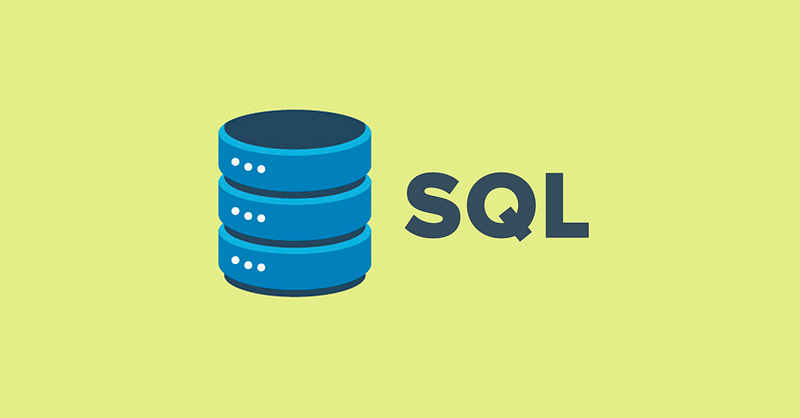50,000+ Free Udemy Courses to Start Today
View Courses
Introduction
First appearing in 1974, SQL is another grand-daddy of programming languages along with C, C++, and Java. It was developed by Donald D. Chamberlin and Raymond F Boyce for RDBMS or Relational Database Management System at IBM. Though different companies like IBM, Microsoft, Oracle have had their versions of SQL. It has proven to be one of the most widely used, yet flexible languages across decades. The uniform adoption of SQL has been so popular, that even in the age of big data and NoSQL databases, the central commands and concepts remain the same.
Job Opportunities
This one is a paradox for a skill like SQL. While job opportunities with just SQL as a skill have been a bit on the decline, SQL is the most common skill needed for almost any programming and analytics job. One look at our different Learning Paths, or job requirement for any technology, data science, and analytics related job; and you'll see that SQL is a listed skill at every level.
So you may need this learning path to plan your SQL learning for another job you might be targeting. Though if this is something that really interests you, then you can specialize in database management and architecture, and target core database and SQL related jobs.
Now let's begin our learning path for SQL Development
Beginners Topics to Cover in SQL Development [ Days 1 - 4]
- Understanding Database, Tables
- Understanding Relational Database
- Entity Relationship logic in the database, SQL Schemas
- Download and installation of the database, configuring your database of choice (Oracle, Microsft, IBM)
- Data types, Primary Key, Foreign Key, Normalization
- SQL statement basics, SELECT Statement, Column aliases
- Distinct and Concatenation Operators, Arithmetic Operations, Null values
- Using Where clause, Comparison Operators
In this course, we'll be looking at database management basics and SQL using the MySQL RDBMS.www.quickcode.co
Learn SQL From Scratch Using MySQL Databases, A Complete SQL Course For Beginnerswww.quickcode.co
Intermediate Topics-I to Cover in SQL [ Days 5 - 8]
- Handling REACT Events with Methods
- BETWEEN, IN, LIKE, IS NULL operators
- Logical Operators and Rule of Precedence
- ORDER By Clause, ASC and DESC, NULLs First and NULLs Last
- Single Row Functions, Character Functions
- Number functions, Nesting Functions, Date Functions and Operations
- Conversion Functions (TO_CHAR, TO_DATE, COALESCE)
- Conditional Functions
Learn SQL and Database Development to work effectively in DBMS like MySQL, SQL Server, Oracle, PostgreSQL, DB2 etc.www.quickcode.co
Learn basics of SQL language on MySQLwww.quickcode.co
Intermediate Topics-II to Cover in SQL [ Days 9 - 13]
- Group Functions (Avg, Count, Max, Min, SUM)
- Data Grouping ( GroupBy, Having, Nested Grouping)
- Joining Tables- USING, ON Clause
- Multiple Joins, Restricted Joins
- Joins- SELF, OUTER, LEFT OUTER, RIGHT OUTER, FULL OUTER, CROSS
- Subqueries- Single and Multiple Rows
- SET Operators- UNION, UNION All, INTERSECT, MINUS
- DML Statements- INSERT, UPDATE, DELETE, COMMIT, ROLLBACK
- DDL Statements- CREATE, ALTER, DROP, TRUNCATE Table
- Constraints- Unique Key, Primary Key, Foreign Key, Not Null, Check
Learn basics of SQL language on MySQLwww.quickcode.co
Advanced Topics or Specializations to Cover in SQL [ Days 14 - 20]
- SSRS- SQL Server Reporting Services
- Data Warehouse and SQL Server Analysis Services- SSAS
- SQL Analytical Services
- Data Base Architecture
Get all the benefits of the following: SQL Server Training SQL DBA Training MSBI / SSIS Training MSBI / SSAS Training…www.quickcode.co
Complementary Skills
SQL is perhaps the most widely used complementing skill. So chances are that you would be learning SQL to complement some other primary skill from programming to analytics to big data. However, if you are someone who really wants to specialize in SQL, then you can focus on learning the intricacies of database management and architecture for enterprises. We can list some of those here, however, they are full-blown specialized learning and less like complementary skills. If we get enough interest, we might come up with a learning path for database architecture later on.
Popular Job Titles with REACT JS Skills
- SQL developer
- Business Intelligence Developer
- Business Intelligence Analyst
- SQL Analyst
- Oracle Developer
- Database Administrator
Conclusion
This brings us to the end of this learning path for SQL development. We hope this learning path helped you. Let us know in case of any further questions or feedback here, QuickCode team will be here to help you with your learning needs.